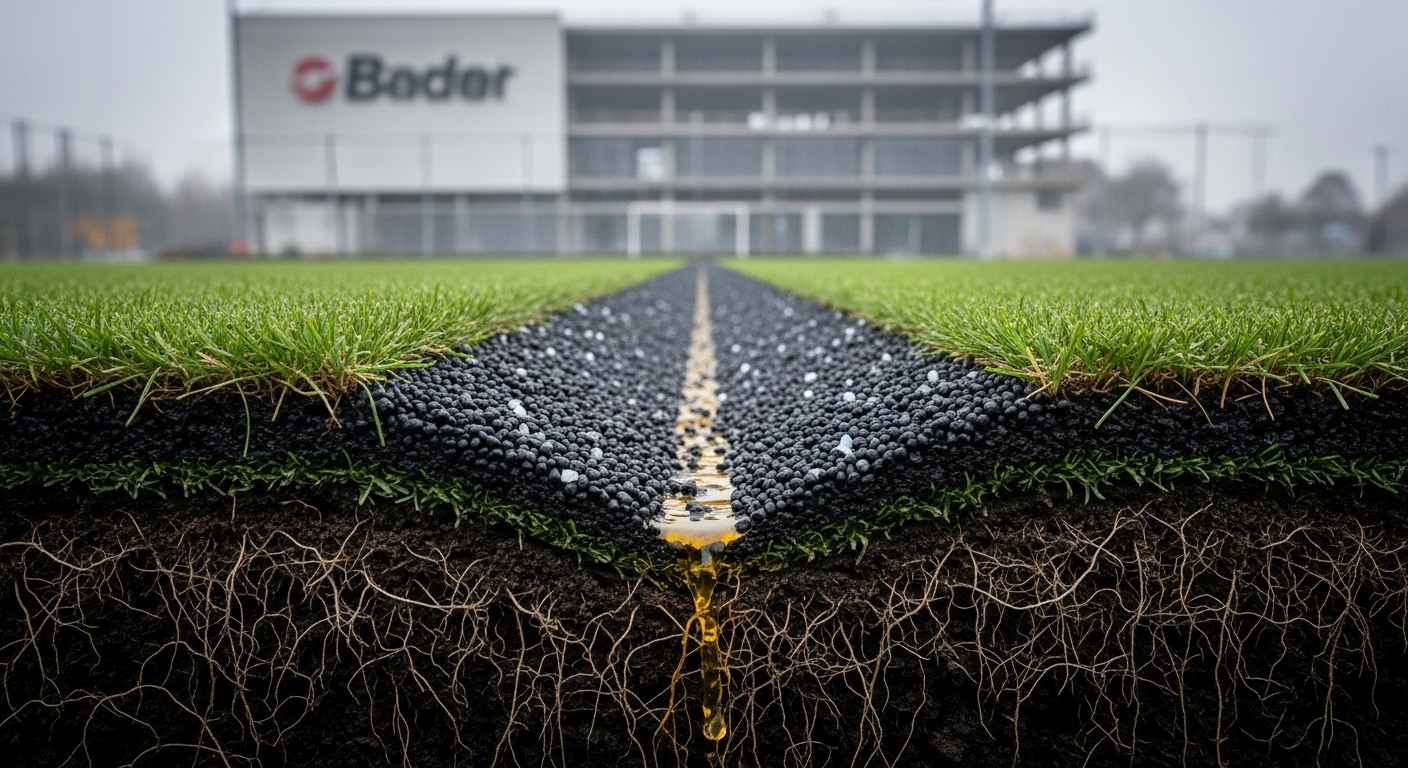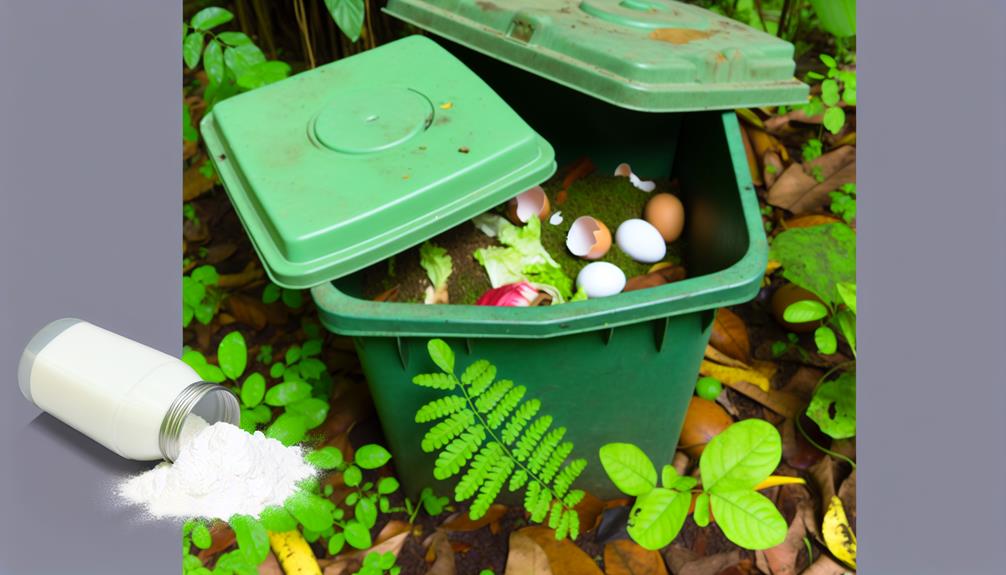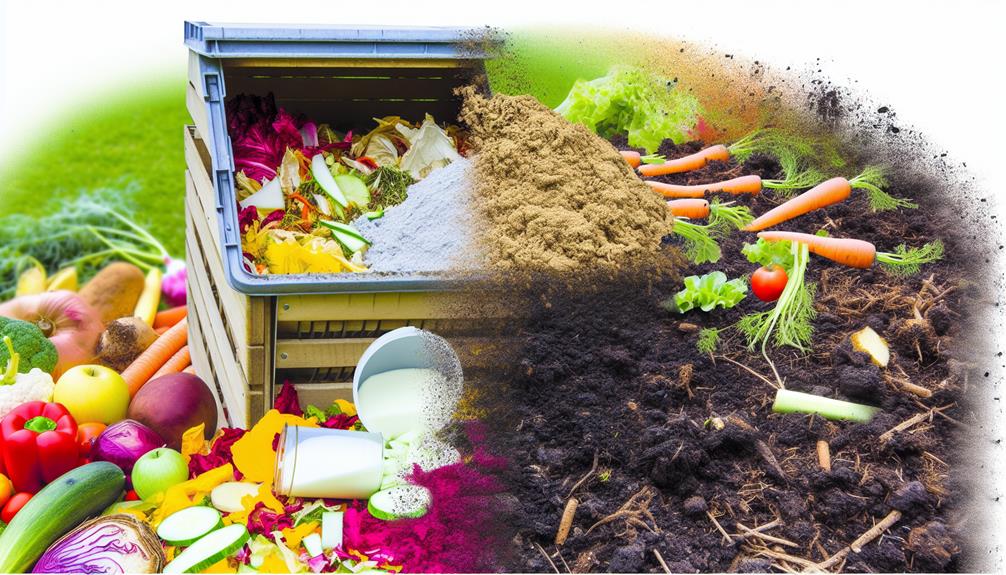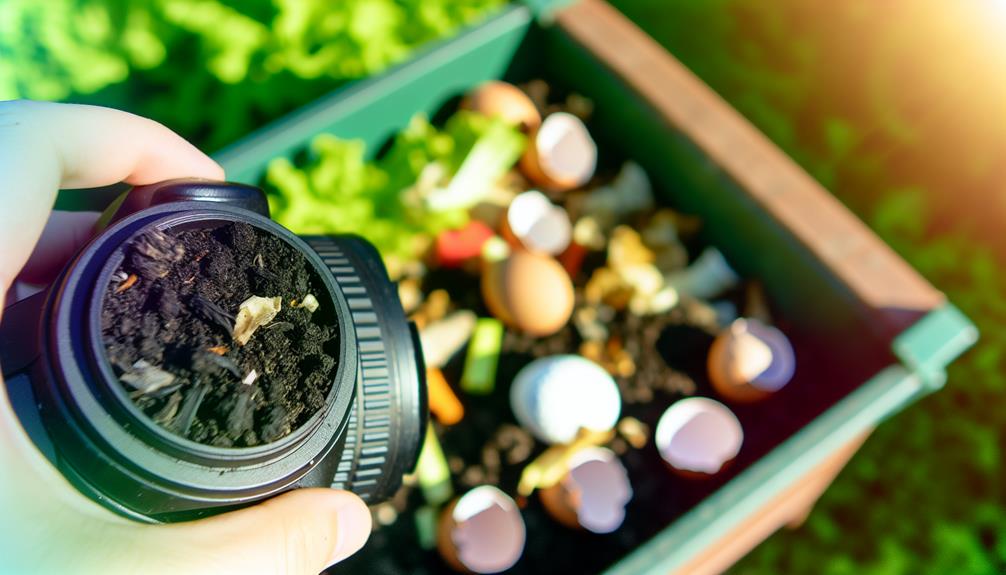

Yes, you can compost powdered milk. It’s great for your compost pile as it adds essential nutrients like calcium, protein, and vitamins, boosting plant growth and soil health. Simply sprinkle powdered milk over your compost or mix it as a liquid solution. Guarantee proper mixing with other compost materials to avoid clumping and pest attraction.
Store it in airtight containers in a cool, dry place. Use powdered milk sparingly and balance it with other compost ingredients. With these tips, you can enrich your soil and support healthy plants. To discover more effective composting techniques, consider exploring further.
Understanding the production and versatility of powdered milk naturally leads to exploring how you can responsibly dispose of unused quantities, which brings us to the basics of composting. Composting is a fantastic way to recycle organic waste, turning it into nutrient-rich soil. By composting, you’re not only reducing landfill waste but also enriching your garden.
To start composting, you need a balance of green and brown materials. Greens include kitchen scraps like fruit and vegetable peels, while browns are items like dried leaves and cardboard. Powdered milk falls under green materials. When you add it to your compost, it’ll contribute to the overall decomposition process, breaking down into useful nutrients for your soil.
Layer your compost pile with alternating greens and browns, making sure it’s moist but not waterlogged. Turn the pile regularly to aerate it, which speeds up the decomposition process. The composting benefits are numerous: you’ll improve soil structure, increase microbial activity, and provide essential nutrients for your plants.

Containing essential nutrients like calcium, protein, and vitamins, powdered milk can greatly enhance the nutrient content of your compost. When you add powdered milk to your compost pile, you’re not just disposing of waste; you’re contributing valuable elements that promote healthy plant growth. Conducting a nutrient analysis of powdered milk reveals its impressive protein content and essential minerals that can benefit your garden.
To give you a clearer picture, here are the key nutrients found in powdered milk:
When you incorporate these nutrients into your compost, you’re creating a richer, more balanced soil. It’s like giving your garden a multivitamin boost.
Don’t overlook the protein content, as it decomposes into nitrogen, a key element for plant vitality. Remember, a well-rounded compost benefits not just individual plants but your entire garden ecosystem, fostering a sense of community and growth.
Also Read: Can You Compost Cake?
When you compost powder milk, you’re enriching your soil with essential nutrients that plants crave.
This practice also helps reduce food waste, making it an environmentally friendly choice.
Consider adding powder milk to your compost pile to boost its effectiveness and sustainability.
Composting powdered milk enriches the soil with essential nutrients, promoting healthier plant growth. When you add powdered milk to your compost, it acts as a soil amendment, providing a range of benefits that turn your compost into a powerful organic fertilizer. By enriching the soil, you can support vibrant gardens and thriving plants.
Here’s how powdered milk enhances your compost:
Using powdered milk in your compost not only creates a nutrient-rich soil but also connects you to a more sustainable way of gardening. Embrace making your garden a part of the eco-friendly movement with this simple addition.
By adding powdered milk to your compost, you effectively cut down on food waste while enriching your soil. When you compost powdered milk, you’re diverting it from landfills, reducing the environmental impact associated with waste disposal. This small but meaningful action contributes to a more sustainable lifestyle.
You might wonder how powdered milk fits into your composting routine. Simply mix it with other compostable materials like vegetable scraps, coffee grounds, and yard clippings. The powdered milk breaks down, releasing valuable nutrients into the compost, which enhances the microbial activity essential for decomposition.
This process not only reduces food waste but also promotes sustainability benefits by creating nutrient-rich compost that can be used to improve soil health in your garden.
Moreover, incorporating powdered milk into your compost supports a closed-loop system, where waste is transformed into a resource. This method aligns with broader environmental goals, encouraging a community-focused approach to sustainability.
One of the main challenges you might face with composting powdered milk is its tendency to clump and form a sticky mass. This can disrupt the balance of moisture levels, making it harder for microorganisms to break down the material effectively. You’ll find that proper moisture management is vital to maintain a healthy composting process.
Here are some potential challenges you might encounter:
Addressing these challenges is essential to maintaining an efficient and odor-free composting system. By managing moisture levels, you can support healthy microorganisms activity and avoid common pitfalls.
Understanding these challenges will help you stay connected with others who share your commitment to sustainable living.
To effectively add powdered milk to your compost, start by mixing it thoroughly with other compost materials to prevent clumping and guarantee even decomposition. You can sprinkle the powdered milk over the compost pile, making sure it’s evenly distributed. This step is essential, as it helps the milk integrate with organic matter and supports the breakdown process.
Next, focus on milk preparation. Before adding, consider combining the powdered milk with water to form a liquid solution. This will help it mix more uniformly with other compost elements, enhancing its role as a nitrogen source. Remember, balance is key: add small amounts to avoid overwhelming the compost system.
Incorporate the powdered milk into your compost as you’d other food recipes. Think of your compost pile as a balanced dish, where each ingredient plays a specific role. Mix the powdered milk with greens (like vegetable scraps) and browns (like leaves), ensuring an even blend. This mixture will promote healthy microbial activity and accelerate decomposition.
Maintain a moist, but not soggy, compost pile by occasionally turning it. This practice ensures proper aeration and efficient breakdown of all materials, including the powdered milk. Consistent care will yield rich, nutrient-dense compost for your garden.
Also Read: Can You Compost Carrot Peel?
To guarantee successful composting of powdered milk, you’ll need to focus on proper storage techniques, balancing your compost ingredients, and avoiding common mistakes.

Store the powdered milk in a cool, dry place before adding it to your compost to maintain its quality. Additionally, aim for a balanced mix of green and brown materials to promote efficient decomposition, and avoid adding too much powdered milk at once to prevent odor issues.
When storing powdered milk for composting, make sure it’s kept in a cool, dry place to prevent clumping and spoilage. Proper storage is crucial for long term preservation, guaranteeing the powdered milk remains viable until you’re ready to add it to your compost. Using airtight containers is essential for preventing moisture and contaminants from compromising the quality of the powder.
Here are some practical tips for successful storage:
Now that your powdered milk is stored properly, let’s focus on balancing compost ingredients to guarantee a healthy and effective composting process. Achieving the right nitrogen balance is vital. Powdered milk, being rich in nitrogen, needs to be balanced with carbon-rich materials. Think of your compost pile as a recipe that needs the right mix of ingredients to thrive.
Here’s a simple way to categorize compost ingredients:
| Nitrogen-Rich (Green) | Carbon-Rich (Brown) | Neutral |
|---|---|---|
| Powdered Milk | Dry Leaves | Soil |
| Vegetable Scraps | Shredded Paper | Water |
| Coffee Grounds | Cardboard | |
| Grass Clippings | Straw |
You’ll want to maintain a ratio of roughly 2:1 for carbon to nitrogen. This balance ensures that the microbes break down the organic matter efficiently. Too much nitrogen can lead to a smelly compost pile, while too much carbon slows down decomposition.
Mix your powdered milk with other green materials before adding it to the pile, then layer it with brown materials. Turn your compost regularly to aerate it and maintain a consistent moisture level. Following these tips will help you create a nutrient-rich compost that benefits your garden.
Preventing common mistakes in composting guarantees that your efforts yield the healthiest and most effective compost possible. When composting powder milk, it’s easy to fall into some common traps that might slow down your compost’s decomposition rate or even harm your compost pile.
Let’s debunk some composting myths and provide you with clear, practical tips to secure success.
One of the most common mistakes in composting powdered milk is adding too much at once. When you add large amounts, it creates an imbalance, leading to improper ratios of carbon and nitrogen in your compost pile. This can hinder the decomposition process and result in a smelly, unattractive heap. To avoid this, incorporate powdered milk sparingly, mixing it well with other compost materials.
Another error isn’t considering contamination risks. Powdered milk can attract pests if not adequately covered or mixed into the compost. To mitigate this, always make sure it’s buried under a layer of brown materials like leaves or straw. This helps mask the scent and keeps unwanted critters at bay.
Additionally, avoid adding powdered milk that’s expired or has mold. Moldy milk can introduce harmful pathogens to your compost, creating health hazards for you and your garden. If you’re unsure about the milk’s condition, it’s better to discard it than risk contamination.
Lastly, remember that composting is a balanced act. Regularly turning your compost and monitoring its moisture and heat levels can help maintain a healthy, efficient decomposition process. By following these tips, you’ll guarantee your compost pile stays productive and safe.
Also Read: Can You Compost Cat Food?
While proper composting techniques are essential, you can also explore alternative uses for powdered milk in your garden and household. Powdered milk is versatile and can serve multiple purposes beyond just emergency rations.
Here are a few ideas:
Yes, powdered milk can attract pests to your compost pile. It’s essential for pests control to avoid adding items that can cause smell issues. Stick together by keeping your compost pest-free and odorless for everyone’s benefit.
You’re wondering how long powdered milk takes to decompose in compost. It depends on moisture content and nitrogen levels. If you’ve got good conditions, it should break down in a few months, fostering a healthy compost community.
Yes, it’s safe to compost expired powdered milk. Just make sure you mix it well to boost the nutrient content. Remember, proper storage before composting prevents any unwanted pests, helping you maintain a healthy compost community.
Yes, powdered milk can affect the pH balance of compost. It can help reduce soil acidity and support a healthy microbial balance, ensuring your compost is more nutrient-rich. You’re contributing to a thriving garden community!
You should mix powdered milk with other compost materials to maintain nutrient balance and adequate moisture content. By doing this, you’ll guarantee a more effective composting process and feel part of a community dedicated to sustainable practices.
Composting powdered milk is doable and beneficial if you follow proper guidelines. It’s rich in nutrients, enhancing your compost’s overall quality.
Just remember to mix it well with other compost materials to avoid clumping and odor issues. Start with small amounts and monitor the pile’s balance.
By incorporating powdered milk correctly, you’ll boost your compost’s effectiveness, contributing to a healthier garden.
Use these tips to guarantee your composting efforts are successful and efficient.
